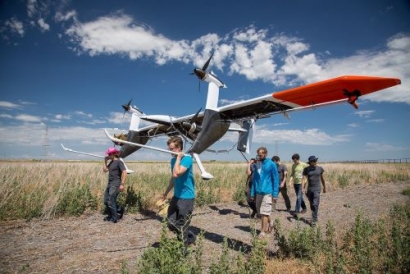
According to the company, “We started by asking questions: could we make wind energy cheaper and more accessible? Could we replace thousands of pounds of steel with smart software and advanced materials? Could we create kites that would fly themselves?”
Those questions fueled a 13-year-long journey in which the company developed a new kind of wind power technology: energy kites.
Google acquired the company in 2013 and made it an X project. Makani spent seven years at Alphabet, during which time the technology advanced from a 20kW demonstrator kite, to a utility-scale kite capable of generating 600kW. Last year, after leaving X to become an independent business, the focus shifted to becoming commercially viable and with the support of Shell, Makani was able to demonstrate the first flights of a utility-scale energy kite system from a floating platform off the coast of Norway.
However, according to CEO Of Makani, Fort Felker, "The road to commercialization is longer and riskier than hoped, so from today Makani’s time at Alphabet is coming to an end. This doesn’t mean the end of the road for the technology Makani developed, but it does mean that Makani will no longer be an Alphabet company."
He went on to say, “We are grateful to all the people and organizations that have supported our team and facilitated our radical approach to harnessing wind energy. In particular we’d like to thank ARPA-E, who funded the development of our 20kW demonstrator kite; Alphabet, who incubated us for seven years, and Shell; who supported us as we transitioned our energy kite system offshore. Their willingness to embrace audacity and uncertainty gave us the resources to meet our challenges head-on for over a decade.
“Toachieve a clean energy future we need to be open to exploring a diverse array of new renewable energy technologies, and that means pushing bold new ideas as far as possible, sometimes without a clear roadmap. I am proud of our team’s dedication to expanding access to renewable energy, and I believe that Makani’s journey is an example of the level of commitment, calculated risk-taking, and hard work that are the right building blocks for creating technical solutions to climate change.”
Shell is exploring options to continue developing Makani’s technology.

